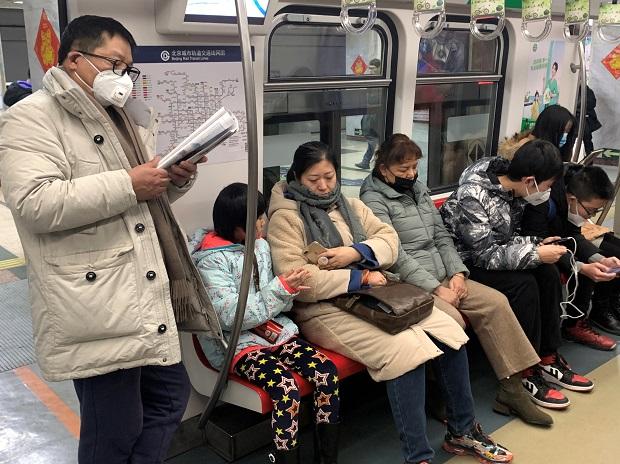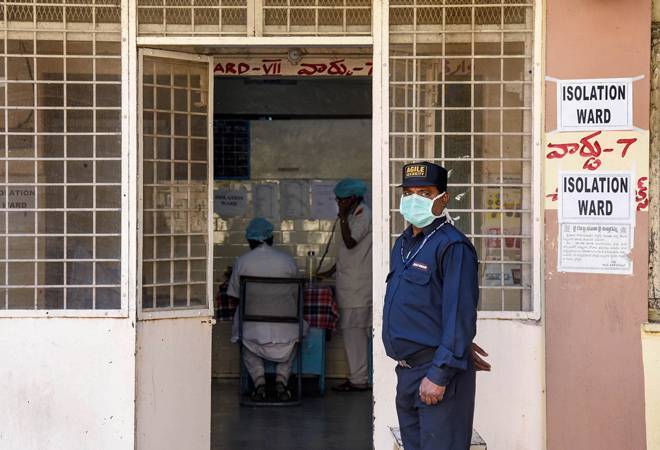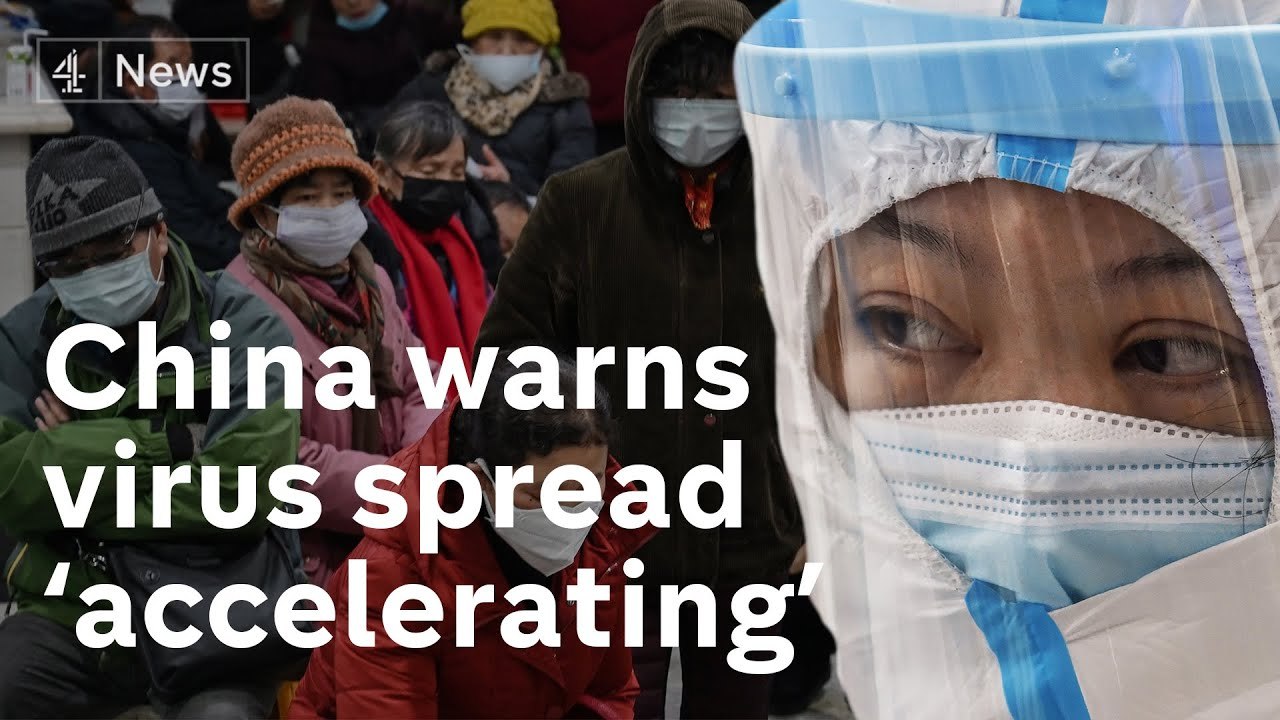Equity indices resumed their downward march on Wednesday as domestic investors were spooked by a sudden spike in coronavirus cases in India.
The government on Wednesday said 28 Covid-19 cases have been detected in the country so far, up from six as of Tuesday. This includes a group of 16 Italian tourists and their Indian driver.
Meanwhile, Union minister Prakash Javadekar said the government is proactively engaged in dealing with coronavirus, and the Prime Minister is monitoring the situation everyday.
After gyrating over 945 points during the day, the 30-share BSE Sensex settled 214.22 points or 0.55 per cent lower at 38,409.48.
The broader NSE Nifty closed 52.30 points or 0.46 per cent down at 11,251.
Banks were the biggest drag on the Sensex, with IndusInd Bank, HDFC Bank, SBI and ICICI Bank dropping up to 3.85 per cent.
Other laggards included Bajaj Finance, ITC, UltraTech Cement and Tata Steel.
On the other hand, Sun Pharma was the top gainer, spurting 2.86 per cent, followed by Asian Paints, Tech Mahindra and M&M.
“Fresh virus cases reported in India overshadowed monetary easing by Fed. Despite mixed global cues, the domestic market took a hit fuelled by weakness in metals, banks and auto stocks.
“Short term tremors due to virus could be felt across the globe including Indian indices but for the long term, the impact looks limited,” said Vinod Nair, Head of Research, Geojit Financial Services.
BSE bankex, finance, basic materials, realty, FMCG, oil and gas, auto and metal indices ended in the red, while IT, healthcare and teck climbed up to 1.13 per cent.
Broader BSE midcap and smallcap indices ended up to 1.61 per cent lower.
Sebi is “internally assessing” the potential impact of the coronavirus epidemic on the capital markets, its Whole-Time Member S K Mohanty said.
Global stocks rallied after the US central bank cut its benchmark interest rate by a sizable half-percentage point in an effort to support the economy in the face of the spreading coronavirus.
Fed Chairman Jerome Powell noted that the coronavirus “poses evolving risks to economic activity”.
The rate cut, however, failed to cheer Indian investors. There is still a lot of uncertainty on how the major economies will contain the spread of the virus, according to Ashika Institutional Equity Research.
“Thus, we remain skeptical that Fed rate cut will stabilise markets sentiments due to coronavirus outbreak,” it said.
Bourses in Shanghai, Seoul and Tokyo ended on a positive note, while Hong Kong settled with losses.
Stock exchanges in Europe opened up to 1 per cent higher.
Brent crude oil futures rose 0.58 per cent to USD 52.16 per barrel.
On the currency front, the Indian rupee depreciated 14 paise to 73.34 per US dollar (intra-day).
China exports plunge on coronavirus epidemic
China’s exports plummeted in the first two months of this year on the back of a coronavirus epidemic that forced businesses to suspend operations, disrupting the world’s supply chains.Exports fell 17.2 percent, the biggest drop since February 2019 during the trade war with the United States, and imports dropped 4 percent, according to official data released Saturday.
A Bloomberg poll of economists had expected exports to drop less, by 16.2 percent, but had forseen a much starker drop on imports of 16.1 percent.
Consumers stayed home during the Lunar New Year break at the end of January and businesses saw a much slower return to work, as the country struggled to contain the spread of the deadly coronavirus, which has killed more than 3,000 people in China alone.
China’s trade surplus with the US — a key point of contention in the trade dispute between the two countries — sharply narrowed 40 percent in the first two months, from USD 42 billion last year to USD 25.4 billion.
Chinese authorities said last month that January and February’s data would be combined.
This is in line with how some other indicators are released, to smooth over distortions from the holiday break.
In an early sign of the economic impact to come, China’s manufacturing activity fell to its lowest level on record in February, with non-manufacturing activity plummeting as well.
Capital Economics’ Julian Evans-Pritchard said in a report Friday that the decision to combine the data in January and February means the “published growth rate won’t fully reflect the extent of the recent weakness.” This is because the disruption was mostly concentrated in February.
He added that the recent downturn in trade has been “much deeper” than the trade data is likely to suggest.
Coronavirus cases were first reported last December in Wuhan, in China’s central Hubei province, prompting a lockdown of the province, a key industrial region with some 56 million people, in late January.
Travel restrictions and quarantine measures are still in place.
The disruptions call into question China’s ability to hold up its end of a partial trade deal signed with the US in January, in which China committed to boost purchases of US goods and services by 200 billion.
Chinese authorities have stressed that the impact of the epidemic would be “short-term.” Beijing has rolled out a host of support measures to help firms get back to business, even as economists forecast a significant hit to overall growth

We are living in an era of uncertainty where the contours of economy,social fabrics are changing everyday. i pen down my thoughts on the most pressing issues of the world.





